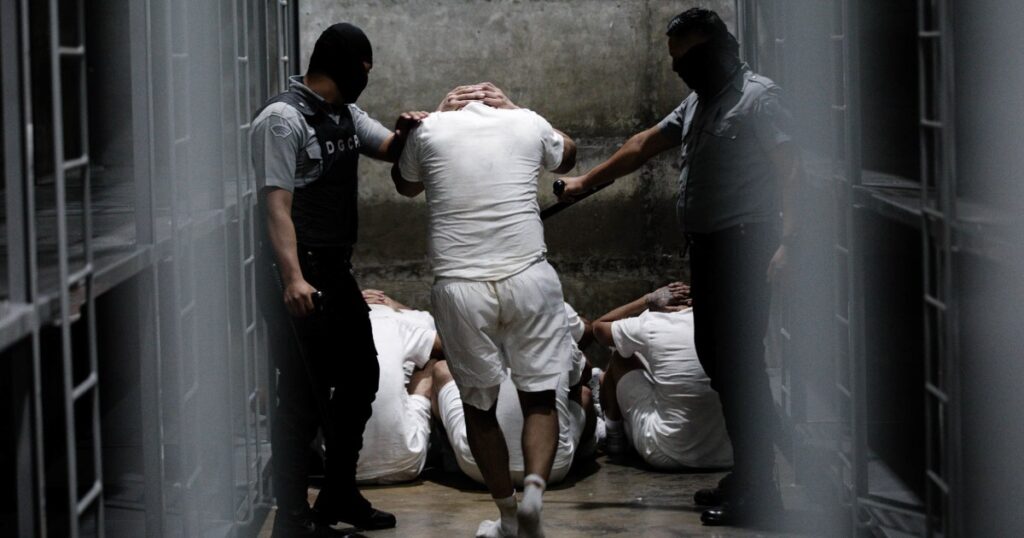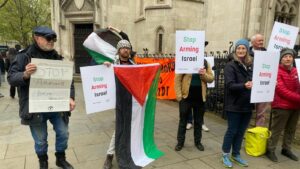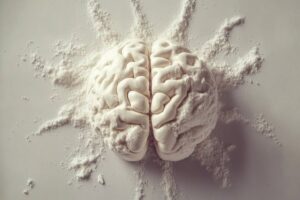
SAN SALVADOR – A Venezuelan man, recently deported to a high-security prison in El Salvador, is causing alarm among his family due to severe health issues following a rare surgery.
Immediate Impact on Family and Health
Even before her son was abruptly imprisoned in El Salvador, Mariela Villamizar was deeply concerned about his health. Wladimir Vera Villamizar, a 33-year-old welder from Venezuela, had previously battled a tuberculosis infection, leaving his right lung severely scarred. His health reportedly deteriorated upon arriving in the United States as an asylum seeker and worsened during his detention, according to his mother.
In January, Vera underwent an emergency right pneumonectomy—total removal of his right lung—after being rushed to the emergency room. “The operation took over five hours,” his mother recounted. “God worked a miracle, and he came out OK, but the recovery was not what he expected.”
Key Details Emerge
Shortly after his surgery and following President Donald Trump’s inauguration, Vera was detained again. His name appeared on a leaked list of deportees sent to the Center for the Confinement of Terrorism (CECOT) in El Salvador under a presidential order invoking the Alien Enemies Act of 1798.
“Since the last time I spoke to him on March 13, I’ve gotten no information about him,” Villamizar’s mother said. “I don’t know how he’s doing, what condition his health is in, how they’re holding him.”
CECOT’s strict incommunicado policy means families receive no updates, sparking legal challenges over the legality of the deportations.
By the Numbers
- Over 200 Venezuelan men deported to CECOT
- Vera’s surgery lasted over 5 hours
- 100+ days families waiting for proof of life
Official Statements and Legal Challenges
Tricia McLaughlin, Assistant Secretary for Public Affairs at the Department of Homeland Security, stated that Vera admitted to a seven-year prison term in Venezuela for murder and alleged gang affiliations. However, Villamizar refuted these claims, calling the conviction a result of false accusations.
“The fact that he had a prior criminal conviction can in no way deprive him of his procedural rights,” said Baher Azmy, Legal Director for the Center for Constitutional Rights.
McLaughlin maintained that Vera was in good health when deported, deferring questions about his current condition to the State Department, which redirected inquiries back to Homeland Security.
Expert Analysis
Medical professionals express serious concerns about Vera’s health post-surgery. Dr. Kiran Lagisetty, a thoracic surgeon, emphasized the critical nature of post-pneumonectomy care. “It’s the kind of procedure you do maybe once a year,” he said, highlighting the risks of detaining such patients.
Dr. Nora V. Becker added that chronic conditions require consistent medical attention to avoid life-threatening complications.
Regional Implications and What Comes Next
The deportation of Vera and others to CECOT has raised significant concerns among human rights organizations. Michelle Brané, executive director of Together and Free, emphasized the dangers faced by detainees due to inadequate medical care.
As legal battles continue, the families of those deported remain in limbo, anxiously awaiting any news. The situation underscores the broader challenges of managing asylum seekers with complex medical needs under current U.S. immigration policies.







